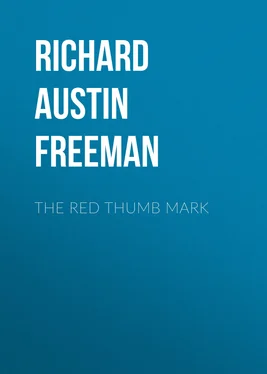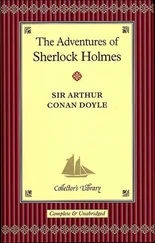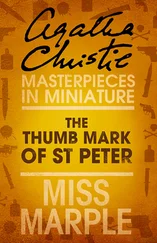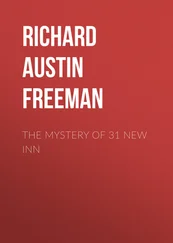Richard Austin Freeman - The Red Thumb Mark
Здесь есть возможность читать онлайн «Richard Austin Freeman - The Red Thumb Mark» — ознакомительный отрывок электронной книги совершенно бесплатно, а после прочтения отрывка купить полную версию. В некоторых случаях можно слушать аудио, скачать через торрент в формате fb2 и присутствует краткое содержание. Жанр: foreign_prose, Классический детектив, foreign_detective, foreign_antique, на английском языке. Описание произведения, (предисловие) а так же отзывы посетителей доступны на портале библиотеки ЛибКат.
- Название:The Red Thumb Mark
- Автор:
- Жанр:
- Год:неизвестен
- ISBN:нет данных
- Рейтинг книги:4 / 5. Голосов: 1
-
Избранное:Добавить в избранное
- Отзывы:
-
Ваша оценка:
- 80
- 1
- 2
- 3
- 4
- 5
The Red Thumb Mark: краткое содержание, описание и аннотация
Предлагаем к чтению аннотацию, описание, краткое содержание или предисловие (зависит от того, что написал сам автор книги «The Red Thumb Mark»). Если вы не нашли необходимую информацию о книге — напишите в комментариях, мы постараемся отыскать её.
The Red Thumb Mark — читать онлайн ознакомительный отрывок
Ниже представлен текст книги, разбитый по страницам. Система сохранения места последней прочитанной страницы, позволяет с удобством читать онлайн бесплатно книгу «The Red Thumb Mark», без необходимости каждый раз заново искать на чём Вы остановились. Поставьте закладку, и сможете в любой момент перейти на страницу, на которой закончили чтение.
Интервал:
Закладка:
"I don't, certainly," agreed Thorndyke. "However, I will look into the matter and communicate with you in the course of a day or two."
He stood holding the door open as the lawyer descended the stairs, and when the footsteps at length died away, he closed it sharply and turned to me with an air of annoyance.
"The 'young rogue,'" he remarked, "does not appear to me to have been very happy in his choice of a solicitor. By the way, Jervis, I understand you are out of employment just now?"
"That is so," I answered.
"Would you care to help me—as a matter of business, of course—to work up this case? I have a lot of other work on hand and your assistance would be of great value to me."
I said, with great truth, that I should be delighted.
"Then," said Thorndyke, "come round to breakfast to-morrow and we will settle the terms, and you can commence your duties at once. And now let us light our pipes and finish our yarns as though agitated clients and thick-headed solicitors had no existence."
CHAPTER III
A LADY IN THE CASE
When I arrived at Thorndyke's chambers on the following morning, I found my friend already hard at work. Breakfast was laid at one end of the table, while at the other stood a microscope of the pattern used for examining plate-cultures of micro-organisms, on the wide stage of which was one of the cards bearing six thumb-prints in blood. A condenser threw a bright spot of light on the card, which Thorndyke had been examining when I knocked, as I gathered from the position of the chair, which he now pushed back against the wall.
"I see you have commenced work on our problem," I remarked as, in response to a double ring of the electric bell, Polton entered with the materials for our repast.
"Yes," answered Thorndyke. "I have opened the campaign, supported, as usual, by my trusty chief-of-staff; eh! Polton?"
The little man, whose intellectual, refined countenance and dignified bearing seemed oddly out of character with the tea-tray that he carried, smiled proudly, and, with a glance of affectionate admiration at my friend, replied—
"Yes, sir. We haven't been letting the grass grow under our feet. There's a beautiful negative washing upstairs and a bromide enlargement too, which will be mounted and dried by the time you have finished your breakfast."
"A wonderful man that, Jervis," my friend observed as his assistant retired. "Looks like a rural dean or a chancery judge, and was obviously intended by Nature to be a professor of physics. As an actual fact he was first a watchmaker, then a maker of optical instruments, and now he is mechanical factotum to a medical jurist. He is my right-hand, is Polton; takes an idea before you have time to utter it—but you will make his more intimate acquaintance by-and-by."
"Where did you pick him up?" I asked.
"He was an in-patient at the hospital when I first met him, miserably ill and broken, a victim of poverty and undeserved misfortune. I gave him one or two little jobs, and when I found what class of man he was I took him permanently into my service. He is perfectly devoted to me, and his gratitude is as boundless as it is uncalled for."
"What are the photographs he was referring to?" I asked.
"He is making an enlarged facsimile of one of the thumb-prints on bromide paper and a negative of the same size in case we want the print repeated."
"You evidently have some expectation of being able to help poor Hornby," said I, "though I cannot imagine how you propose to go to work. To me his case seems as hopeless a one as it is possible to conceive. One doesn't like to condemn him, but yet his innocence seems almost unthinkable."
"It does certainly look like a hopeless case," Thorndyke agreed, "and I see no way out of it at present. But I make it a rule, in all cases, to proceed on the strictly classical lines of inductive inquiry—collect facts, make hypotheses, test them and seek for verification. And I always endeavour to keep a perfectly open mind.
"Now, in the present case, assuming, as we must, that the robbery has actually taken place, there are four conceivable hypotheses: (1) that the robbery was committed by Reuben Hornby; (2) that it was committed by Walter Hornby; (3) that it was committed by John Hornby, or (4) that it was committed by some other person or persons.
"The last hypothesis I propose to disregard for the present and confine myself to the examination of the other three."
"You don't think it possible that Mr. Hornby could have stolen the diamonds out of his own safe?" I exclaimed.
"I incline at present to no one theory of the matter," replied Thorndyke. "I merely state the hypotheses. John Hornby had access to the diamonds, therefore it is possible that he stole them."
"But surely he was responsible to the owners."
"Not in the absence of gross negligence, which the owners would have difficulty in proving. You see, he was what is called a gratuitous bailee, and in such a case no responsibility for loss lies with the bailee unless there has been gross negligence."
"But the thumb-mark, my dear fellow!" I exclaimed. "How can you possibly get over that?"
"I don't know that I can," answered Thorndyke calmly; "but I see you are taking the same view as the police, who persist in regarding a finger-print as a kind of magical touchstone, a final proof, beyond which inquiry need not go. Now, this is an entire mistake. A finger-print is merely a fact—a very important and significant one, I admit—but still a fact, which, like any other fact, requires to be weighed and measured with reference to its evidential value."
"And what do you propose to do first?"
"I shall first satisfy myself that the suspected thumb-print is identical in character with that of Reuben Hornby—of which, however, I have very little doubt, for the finger-print experts may fairly be trusted in their own speciality."
"And then?"
"I shall collect fresh facts, in which I look to you for assistance, and, if we have finished breakfast, I may as well induct you into your new duties."
He rose and rang the bell, and then, fetching from the office four small, paper-covered notebooks, laid them before me on the table.
"One of these books," said he, "we will devote to data concerning Reuben Hornby. You will find out anything you can—anything, mind, no matter how trivial or apparently irrelevant—in any way connected with him and enter it in this book." He wrote on the cover "Reuben Hornby" and passed the book to me. "In this second book you will, in like manner, enter anything that you can learn about Walter Hornby, and, in the third book, data concerning John Hornby. As to the fourth book, you will keep that for stray facts connected with the case but not coming under either of the other headings. And now let us look at the product of Polton's industry."
He took from his assistant's hand a photograph ten inches long by eight broad, done on glazed bromide paper and mounted flatly on stiff card. It showed a greatly magnified facsimile of one of the thumb-prints, in which all the minute details, such as the orifices of the sweat glands and trifling irregularities in the ridges, which, in the original, could be seen only with the aid of a lens, were plainly visible to the naked eye. Moreover, the entire print was covered by a network of fine black lines, by which it was divided into a multitude of small squares, each square being distinguished by a number.
"Excellent, Polton," said Thorndyke approvingly; "a most admirable enlargement. You see, Jervis, we have photographed the thumb-print in contact with a numbered micrometer divided into square twelfths of an inch. The magnification is eight diameters, so that the squares are here each two-thirds of an inch in diameter. I have a number of these micrometers of different scales, and I find them invaluable in examining cheques, doubtful signatures and such like. I see you have packed up the camera and the microscope, Polton; have you put in the micrometer?"
Читать дальшеИнтервал:
Закладка:
Похожие книги на «The Red Thumb Mark»
Представляем Вашему вниманию похожие книги на «The Red Thumb Mark» списком для выбора. Мы отобрали схожую по названию и смыслу литературу в надежде предоставить читателям больше вариантов отыскать новые, интересные, ещё непрочитанные произведения.
Обсуждение, отзывы о книге «The Red Thumb Mark» и просто собственные мнения читателей. Оставьте ваши комментарии, напишите, что Вы думаете о произведении, его смысле или главных героях. Укажите что конкретно понравилось, а что нет, и почему Вы так считаете.












